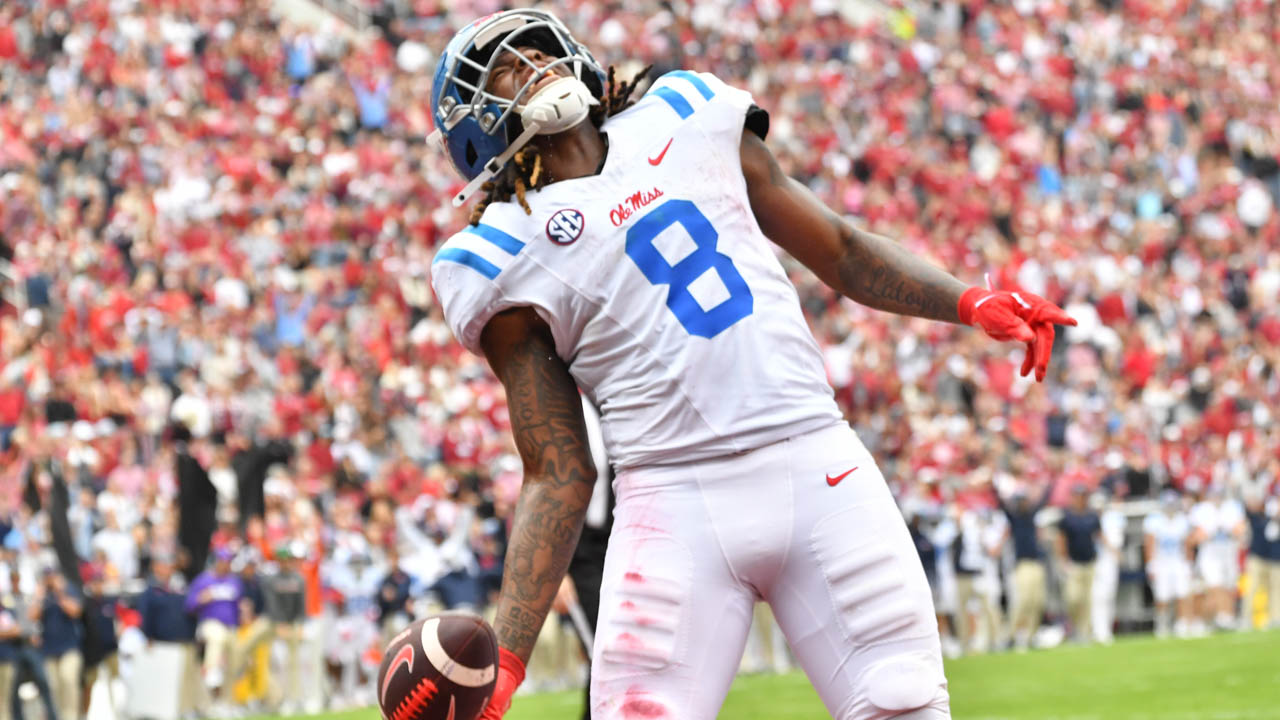Uncategorized
Honor Roy Coleman in Some Way
Ronnie Agnew, a former executive editor of The Clarion-Ledger, is the executive director of Mississippi Public Broadcasting. He is a 1984 journalism graduate of Ole Miss. In 2008, Ronnie was named the 50th recipient of the Silver Em award presented by the journalism school. In 2003, he was inducted into the University of Mississippi’s Alumni Hall-of-Fame. Among many honors, Ronnie is a four-time judge for the Pulitzer Prize, and a champion for diversity in America’s newsrooms.
The passes arrived with velocity. One after another, the tight spirals landed with precision and accuracy. We were at Sardis Lake that warm spring day in the early 1980s. His playing days over, the former quarterback was visiting old classmates and reliving memories with his former colleagues – members of the Ole Miss football team who played with him during the late 1970s.
The exact year escapes me, but I will never forget the guy effortlessly throwing me rifle-like passes without displaying a single bead of sweat. I don’t remember hauling in more than three of his missiles. I had more drops than a Mississippi rainstorm. After throwing a few passes, Roy Coleman had had enough, turning his attention to his real buddies, the guys with whom he shared a locker room and a million stories.
Those of us who were with him at the lake knew the historical significance of his visit with us that day. Roy had not been a frequent visitor to Ole Miss, and during recent years, I don’t recall seeing him that much, if at all. His recent death at 54 left me stunned and looking for the why, the how. Without him knowing it, I considered Roy Coleman a hero.
In 1974 as a kid out of Jackson’s Callaway High School, he was the first black starting quarterback at Ole Miss. Imagine the pressure. No, don’t imagine the pressure. It is not possible to feel what Roy Coleman must have felt. The 1970s seem like yesterday to me, but the pace of time suggests that we live in a different world today. Roy Coleman, by blazing that trail, helped to make it different.
Ole Miss today bears little resemblance to Roy Coleman’s time – physically and ideologically. Black quarterbacks have come and gone, and are no longer considered unusual in any way. I can’t help but wonder if the ones who have enjoyed the prestige, the popularity, the stardom that comes with the quarterback position understand that there had to be a first. Roy Coleman was that first. He took the figurative hit for those who would come after him.
He could have attended a historically black college or university and the script of his football playing days might have been different. At Ole Miss, he played both quarterback and wide receiver. That doesn’t happen much today. A quarterback is a quarterback, but it is easily the position that gets the glory and the mean-spirited criticism. No doubt Coleman endured both. But the importance of the road he paved cannot be underscored.
NFL rosters today are filled with African American players from Mississippi schools. Somebody had to be first. The guys who have followed Coleman and turned their talent into NFL riches owe him a huge debt, even if many of them have never heard his name or his story. I’ve never heard it myself. I know basic facts about the man. I know that he was kind enough to hurl passes in my direction at a school picnic. I know that he was popular among his fellow players. But I don’t know his story. I don’t know what it must have felt like to be first. I would have loved to hear Roy Coleman talk about his days at Ole Miss. He left the school a year before I arrived. I simply never got the chance. I thought there would be time to one day hear from him his story. Not for a moment did I think a 54-year-old man with so much to say would have to be described as “the late” Roy Coleman, his voice silenced, his story confined to people closest to him. There were other black men who shared the years and the experiences with Roy Coleman. They know what it was like being among the first.
And they know what Coleman must have felt playing the most prominent position on the field, the position with expectations that border on the unrealistic at times. His stories live through them. I want to hear them. But the man who possessed a golden arm has left this life, and the field, prematurely. The legacy he leaves should be celebrated by Ole Miss in some way. I hope Ole Miss finds a way to honor Roy Coleman for his sacrifice. Even in death, there is life to his story. He didn’t rewrite the record books with his play on the field, but he certainly wrote new chapters in history.

























